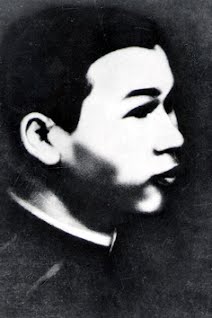Typical historical - cultural celebrity of Bac Ninh people in modern times
Bac Ninh - the land of talented people, the homeland of historical celebrities - great cultural houses who have made many important contributions to history of nation building and defense of the nation, building Dai Viet - Vietnam civilization.
Inheriting, promoting and developing the tradition of human identity in Bac Ninh - Kinh Bac, in the glorious Ho Chi Minh era, under the leadership of the Communist Party of Vietnam, headed by President Ho Chi Minh, Bac Ninh homeland is proud to have children who are senior communist soldiers, outstanding leaders of the Party such as General Secretary Nguyen Van Cu, comrades: Ngo Gia Tu, Hoang Quoc Viet, Le Quang Dao ... Bac Ninh Province Portal would like to introduce to readers the modern-day elite of the homeland.
Ngo Gia Tu (1908 - 1934)
Ngo Gia Tu was born and raised in a family with patriotic traditions in Tam Son commune, Tu Son town, Bac Ninh province - a land of academics, rich in cultural and revolutionary tradition. Ngo Gia Tu is inherently intelligent and studious, was soon enlightened to the revolution from a young age and became an excellent student of President Ho Chi Minh, devoting his life to the glorious revolutionary cause of the Party, for the independence and freedom of the Fatherland.

Comrade Ngo Gia Tu - An outstanding communist soldier (Photo: Internet)
In 1926, Ngo Gia Tu studied at Buoi School (now Chu Van An School, Hanoi) and participated in the movement to demand the release of Phan Boi Chau and the mourning of Phan Chu Trinh, so he was suspended from the class. At the end of 1926, he was admitted to the Vietnam Revolutionary Youth Association. In 1927, after completing a district training course in Guangzhou (China) organized by Comrade Nguyen Ai Quoc, Ngo Gia Tu returned to Bac Ninh to propagate and build a revolutionary base. In 1928, as the Provincial Secretary of the Vietnam Revolutionary Youth Association of Bac Ninh - Bac Giang, he proposed the policy of "proletarianization", sending the Association's cadres into factories and mines, plantations to eat together, live together and labour together to propagate revolutionary enlightenment among the working class.
In March 1929, at house number 5D, Ham Long street, Hanoi, Comrade Ngo Gia Tu and other advanced youths in the Vietnam Revolutionary Association of Bac Ky Youth established the first Communist Party cell in the country.
On June 17, 1929, at house number 312 Kham Thien street (Hanoi), Comrade Ngo Gia Tu, representatives of Bac Ky and comrades in the first Communist cell had a meeting and decided to establish Indochina Communist Party; The provisional Central Committee consists of 7 comrades.
At the end of July 1929, Comrade Ngo Gia Tu returned to Bac Ninh to establish the first communist cell in the two provinces of Bac Ninh - Bac Giang.
At the end of August 1929, Comrade Ngo Gia Tu went to Nam Ky (Cochinchina) to propagate and build revolutionary bases.
On the night of May 31, 1930, at a revolutionary base in Phu An by the Thi Nghe River, Saigon, Comrade Ngo Gia Tu was captured by secret agents.
On May 13, 1933, the French colonialists exiled Ngo Gia Tu to Con Dao.
At the end of 1934, the Party Committee of Con Dao prison decided to organize for Comrade Ngo Gia Tu and some other comrades to escape from prison to return to the mainland to direct the restoration of the revolutionary movement. After a period of preparation, in December 1933, the prison escape was carried out. On the way to cross the sea to return to the mainland to continue revolutionary activities, Comrade Ngo Gia Tu died.
To gratitude for the great merits of Comrade Ngo Gia Tu, the State ranked and granted the Certificate of National Revolutionary Historical Relic for the house of comrade Ngo Gia Tu's family in Tam Son village. At the same time, the Party Committee and people of Bac Ninh built in Tam Son's hometown a house displaying the life and revolutionary career of Comrade Ngo Gia Tu; the square and the statue of Comrade Ngo Gia Tu. The above cultural works have been the red address in educating the revolutionary patriotic tradition for the masses, especially the young generation of Bac Ninh in particular and Vietnam in general.






